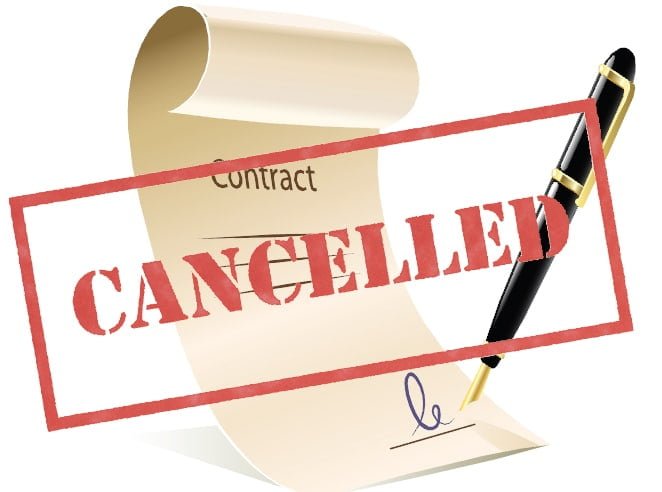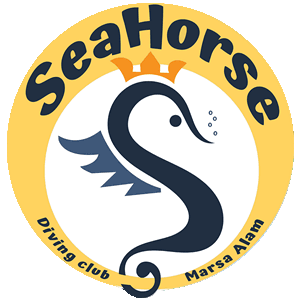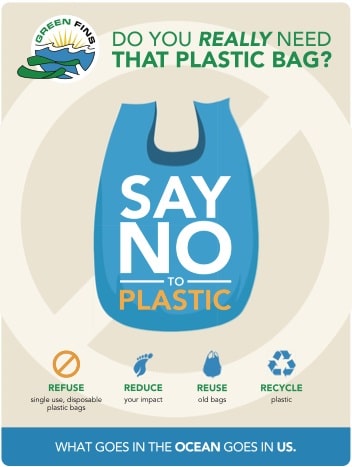Sustainable Diving
We, at SeaHorse, aim at promoting sustainable diving and snorkeling. Or in other words, diving/snorkeling in a way that has little or no negative effect on the habitats we’re diving in. How? First seeking to be a responsible dive operator by following the code of conduct established by the Green Fins’ initiative:
- We adhere to local and international diving federation rules;
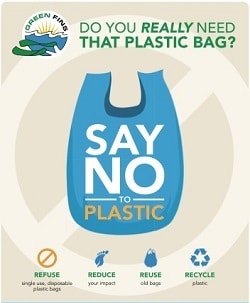
- We keep ourselves updated with and abide by all local, regional, national and international environmental laws, regulations and customs;
- We reduce our waste as much as possible and we especially try to avoid plastic by all means;
- When waste generation is unavoidable, we responsibly collect it by using and providing adequate garbage facilities – no littering nor fish feeding;
- We save fresh water as much as possible by washing diving gear in rinsing tanks for example;
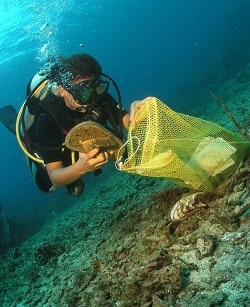
- We make sure that the boats we work with use mooring buoys wherever they are available, instead of random anchoring which destroys fixed flora and fauna;
- We provide our guests with information on local Marine Protected Areas, environmental rules and regulations; and
- We participate in regular beach and underwater cleanups.
That’s for our part. But we also expect our guests to be – or become – responsible divers/snorkelers.
- We adhere to local and international diving federation rules;
- We keep ourselves updated with and abide by all local, regional, national and international environmental laws, regulations and customs;
- We reduce our waste as much as possible and we especially try to avoid plastic by all means;
- When waste generation is unavoidable, we responsibly collect it by using and providing adequate garbage facilities – no littering nor fish feeding;
- We save fresh water as much as possible by washing diving gear in rinsing tanks for example;
- We make sure that the boats we work with use mooring buoys wherever they are available, instead of random anchoring which destroys fixed flora and fauna;
- We provide our guests with information on local Marine Protected Areas, environmental rules and regulations; and
- We participate in regular beach and underwater cleanups.
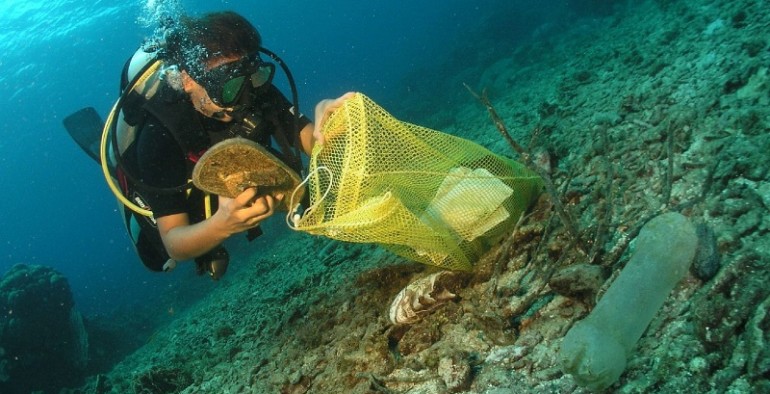
That’s for our part. But we also expect our guests to be – or become – responsible divers/snorkelers.
The Facts
Like it or not, due to lack of environmental education and proper training, scuba divers and snorkelers are actually causing substantial damage to the world’s coral reefs.
The Facts
Like it or not, due to lack of environmental education and proper training, scuba divers and snorkelers are actually causing substantial damage to the world’s coral reefs.
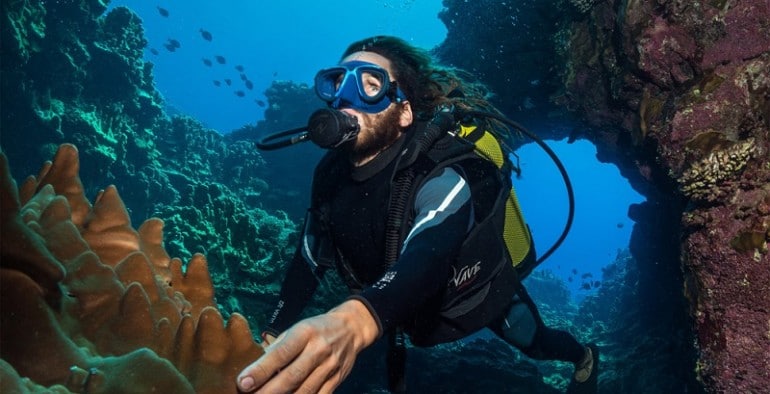
A few figures:
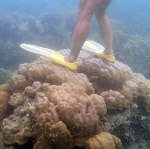
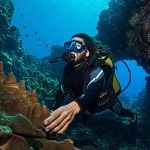
A few figures:
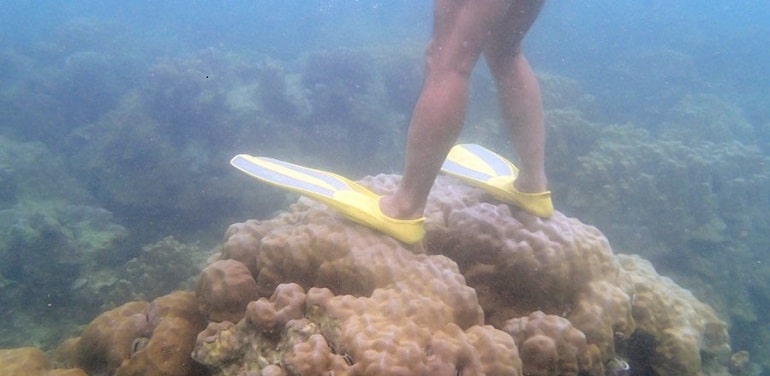
Multiply these figures by an estimated 1+ million new divers being certified every year, and you will realize how big a threat mass dive tourism can be to marine life.
The Solutions
The good news is: with just a bit of knowledge and training, it’s very easy to become an environment-friendly diver/snorkeler.
If you choose to dive or snorkel with us, our mission will not only be to make you get the most from your underwater experience, but also to make it RESPONSIBLE:
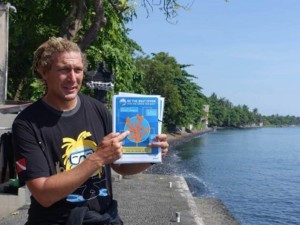
- We will provide you with briefings and literature about good environmental practices for snorkeling, diving, boating and marine wildlife interactions;
- We will provide you with briefings and literature about good environmental practices for snorkeling, diving, boating and marine wildlife interactions;
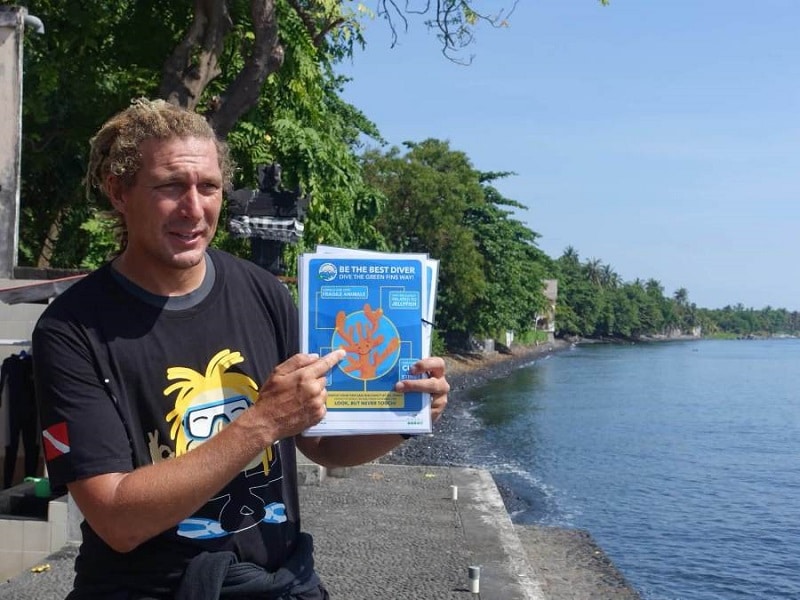
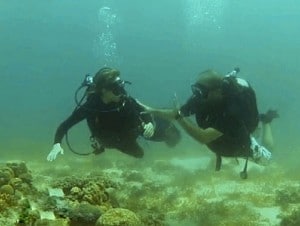
- We may in addition correct you if we see you doing something damaging to the marine environment, underwater or at the surface;
- We may in addition correct you if we see you doing something damaging to the marine environment, underwater or at the surface;
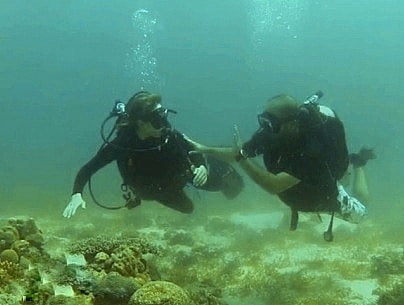
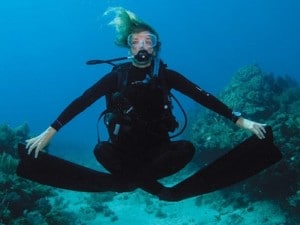
- If need be, we would be happy to help you improve your diving techniques (buoyancy, finning techniques…) and have zero impact dives; and
- If need be, we would be happy to help you improve your diving techniques (buoyancy, finning techniques…) and have zero impact dives; and
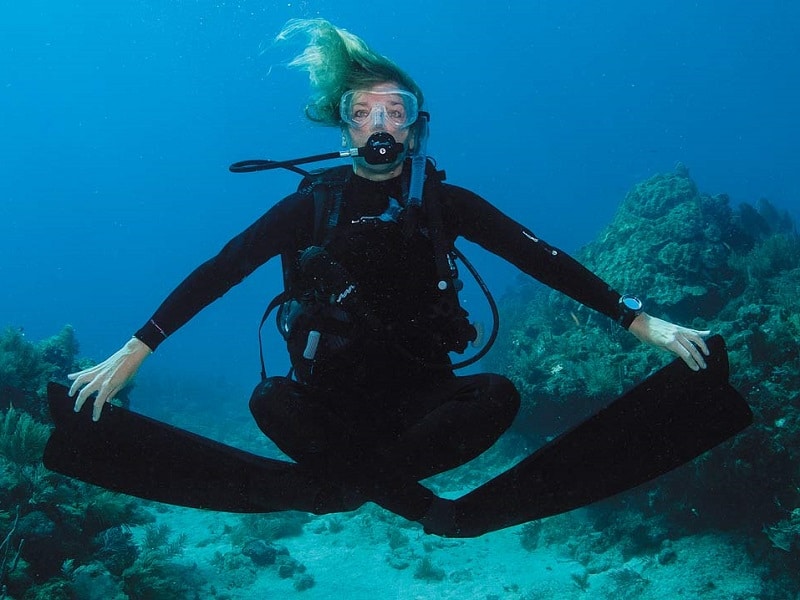
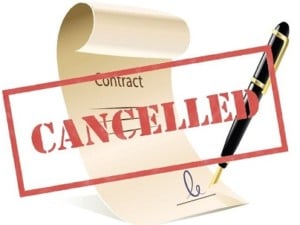
- As a last resort, guests who would ignore our guidelines and intentionally cause damage to the marine environment may face consequences of termination of all activities with us.
- As a last resort, guests who would ignore our guidelines and intentionally cause damage to the marine environment may face consequences of termination of all activities with us.
